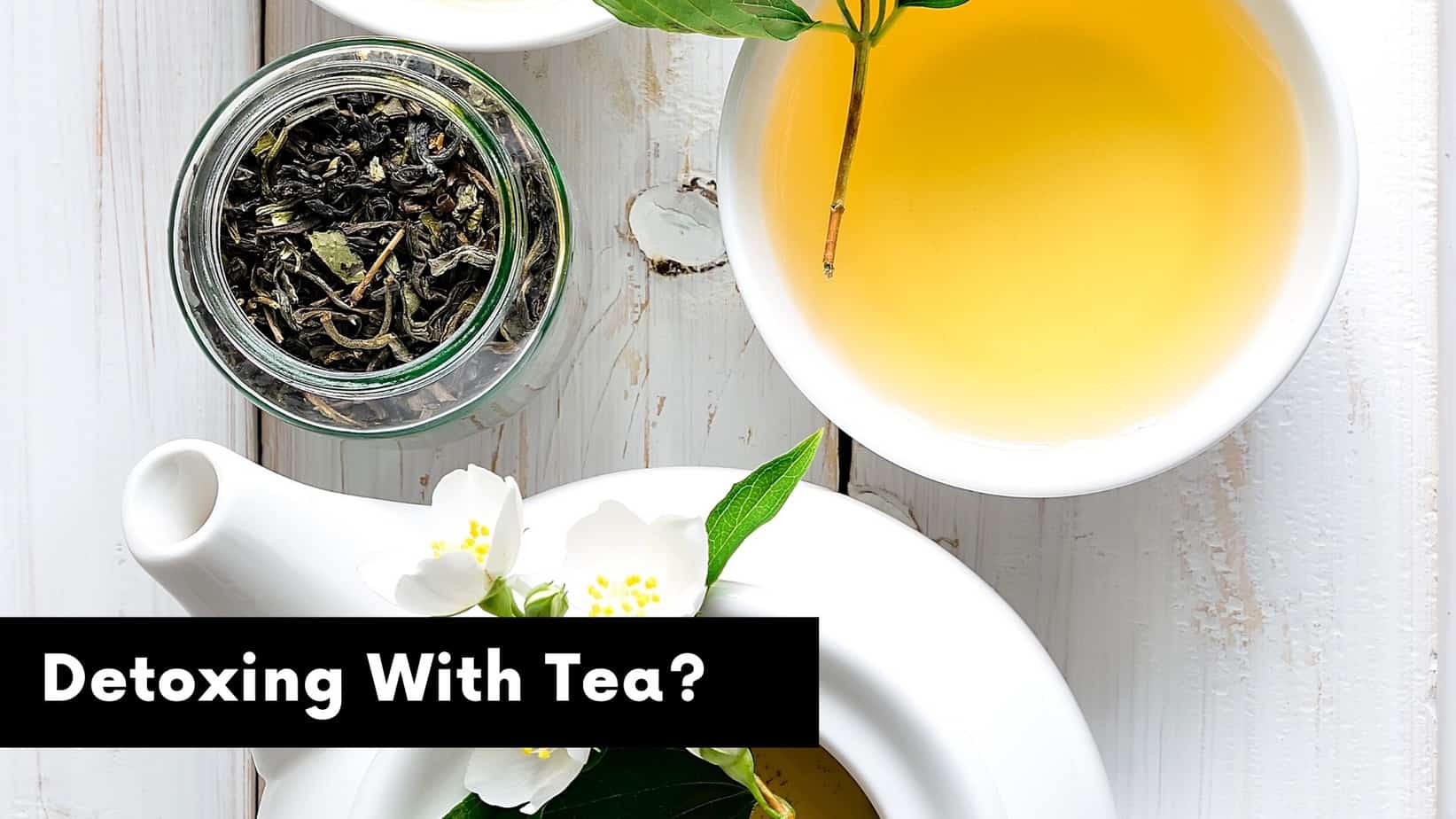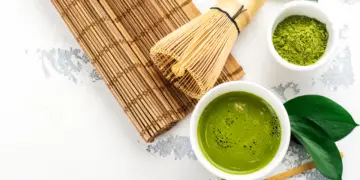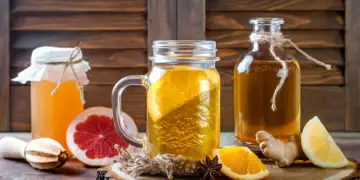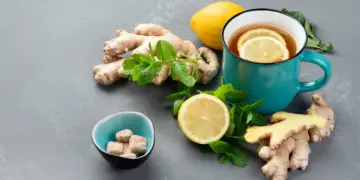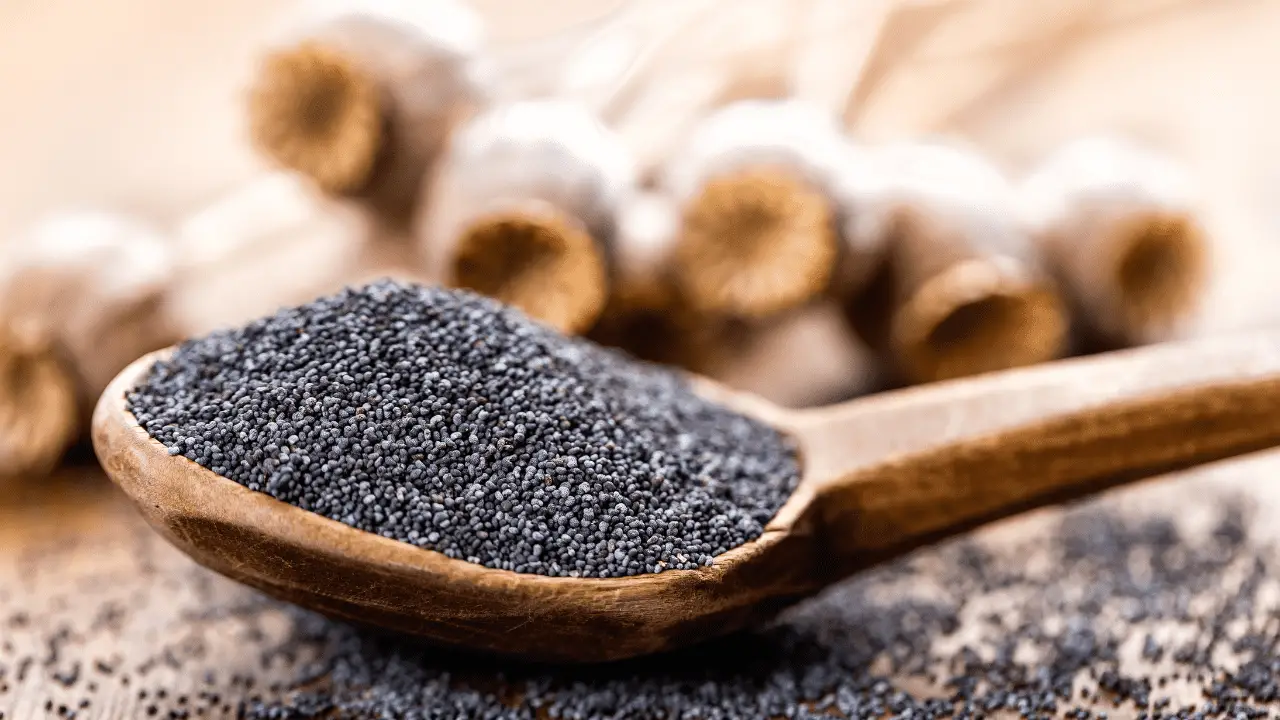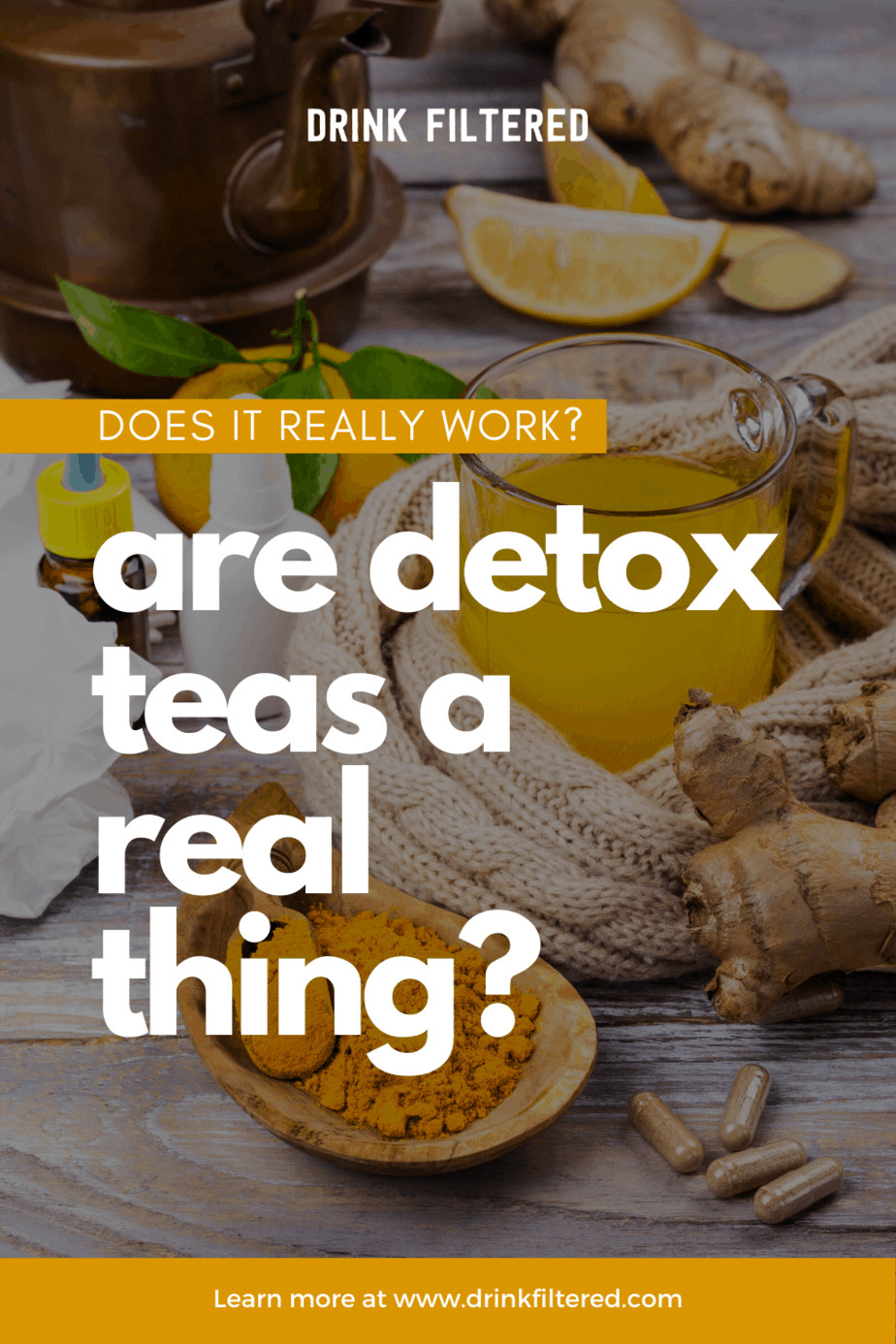It is no secret that the term “detox” has become quite a buzzword over the past decade or so. Everyone seems to be talking about how to detoxify the body to help fight against the harmful effects of toxins in the environment and food. There are many references to these toxins and how they can increase the likelihood of cancers and other diseases. Consequently, we hear that a quick and easy solution is to drink detox teas. But, do these really work? What does detox tea do? Have you ever wondered if this stance might just be a marketing scheme to get you to buy more products or drink more tea?
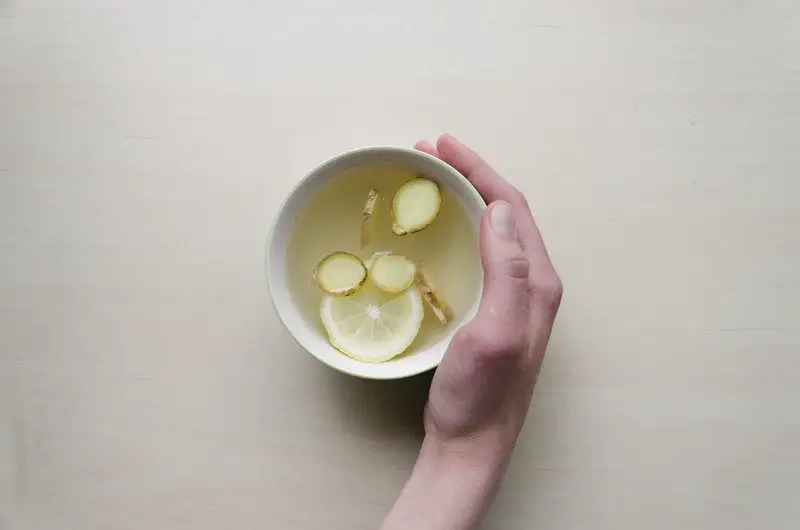
Although cleverly marketed, the ingredients commonly found in detox teas, such as caffeine, herbs, and laxatives simply help speed metabolism or flush water or food out of the body rather than support actual detoxification. There is no reliable evidence that drinking detox teas can help flush toxins
The Claims: What Detox Teas Supposedly Do
Detox teas claim to be a natural “healthy” way to help lose weight. They supposedly help with weight loss and fat burning by speeding up the metabolism. They have high levels of caffeine. This might make your feel more motivated to do vigorous exercise.
People often find they go to the toilet more after drinking these detox teas because they have a laxative effect. While essentially flushing your system out may result in a small amount of weight loss, it is not the way to go about it. Prolonged laxative use can leave your body reliant on them to function normally – which is not ideal.
Detox tea also promises to eliminate toxins from the body. They supposedly do this by helping to clear out your digestive tract. While you might feel lighter and less bloated this is not a substantial way to burn fat or lose excess weight.
The body already has its own natural detoxification system to tackle potentially harmful ingredients in something you ate or toxic compounds. The body’s detoxication system rarely needs help or interference, unless medically necessary – which would result in your doctor prescribing something. For example, your skin keeps pathogens out the kidneys filter your blood. If you have good liver health, it will tackle toxins for you. So, you don’t need a detox tea to do this for you. Plus, there is no evidence that they can eliminate toxins that work to the extent that these detox teas advertise.
Are Detox Teas Even Safe?
While there is no reliable evidence that drinking detox teas can help flush toxins out of the body, it is important to note that most detox teas have not been tested for safety by any central authority. As detox teas make claims on health, they are often considered a dietary supplement rather than a beverage or food.
As such, the FDA is also not required to review dietary supplements for safety and effectiveness before they are marketed, which means there are many companies out there that can create products that may be harmful or contain something different than what is described on the label. So, labeling something as “detox” really has no regulated meaning and can be deceiving and outright false in many cases.
There have been specific cases of teas marketed as “detox” which were found to contain hidden drug ingredients. Additionally, some detox teas may cause harm to the body such as diarrhea, heart abnormalities, and electrolyte or sleep imbalances if used long-term. Ultimately, marketing simply cannot be trusted. Even if a detox tea supplement is safe and legitimate, it does not mean that it will help solve a specific health problem caused by toxic overload.
So, What is Detoxification Anyway?
Detoxification is the way the body naturally eliminates toxins through processes such as breathing, sweating, urinating, and producing bowel movements, which involve the kidneys, skin, liver, lungs, and intestines. If your body did not do this naturally and frequently, we most likely would be dead or hospitalized.
However, despite this innate ability to detox, the body can get into a state of toxic overload, or “oxidative stress”, which occurs when the amount of toxic exposure surpasses the body’s ability to detoxify. When this happens, studies have shown that chronic diseases such as diabetes, atherosclerosis, cancer, cardiovascular disease, and chronic inflammation can occur. How and why does this happen? There are a few reasons.
One of the biggest contributors to a toxic overload for the average American is consuming the Standard American Diet (SAD) which is lacking in key nutrients to support proper detoxification. Other contributors include excessive exposure to pollution, smoking, pesticides, pharmaceutical drugs, heavy metals, and many man-made chemicals found in everyday household items, as evidenced by this study. Fortunately, proper nutrition and lifestyle factors can help to both prevent this oxidative stress and aid in proper detoxification processes.
Other Frequently Asked Questions
Does Detox tea make you Poop?
Detox teas may make you poop. Detox tea contains senna leaf, dandelion root, and licorice root. These ingredients in detox teas can act as a natural laxative. These herbal teas might seem glamourous, but some users can find themselves experiencing severe diarrhea. This can result in dehydration and an electrolyte imbalance as your body flushes out fluids. As mentioned earlier, prolonged use of laxatives – whether herbal laxative ingredients in detox tea or over-the-counter medications can disrupt the regular function of the digestive system.
Does Detox tea help you lose weight?
Technically, detox teas might help you lose some excess weight. Detox teas speed up normal digestion so while emptying out your digestive system could shed water weight, it’s not likely to help you burn fat or notice substantial weight loss. Detox teas contain green tea and black tea which are mild diuretics.
Some common detox tea ingredients like green tea might speed up metabolism.
Detox teas contain caffeine which can boost metabolism. This can technically mean you burn more fat and help with losing weight. A study found that consuming high levels of caffeine may increase the body’s ability to burn fat. However, drinking caffeine alone is not going to help you shed pounds if you’re drinking these for weight loss; you need to eat a balanced healthy diet and lead an active lifestyle.
Does Detox tea help with bloating?
Sometimes bloating is caused by excess water. So, a lot of the ingredients in many detox teas can help to flush this out and appear as though some weight loss occurred.
In particular, peppermint tea is a common detox tea ingredient in most teas – but cannot be found in all of them. Studies have found peppermint useful for alleviating bloating in people with IBS. You can reap these benefits in regular tea rather than forking out for an expensive detox tea blend. Green tea also appears to be good for gastrointestinal health.
This is not the only culprit for bloating. If you’re bloated for another reason, detox tea will be of no help. Bloating can be the result of swallowing air while chewing, intolerances to certain foods, constipation, hormones, an imbalance of the bacteria in your gut, and more. So, for example, if you’re intolerant to lactose, drinking detox tea will not fix the bloating; removing the culprit from your diet will.
Does Detox tea help with constipation?
These teas can help treat constipation. However, they might not actually address the cause of constipation – which could be that you need to add more fiber to your diet.
Ingredients like senna in detox teas can help with conspiration. However, senna is only recommended for short-term use to tackle a one-off bout of conspiration. Long-term use can result in electrolyte imbalance or even the digestive system struggling to function without it. In severe instances, having an imbalance of electrolytes can cause muscle spasms and even seizures. However, detox teas are usually sold in regimens, for example, a “30-day detox” and are rarely -if ever – marketed as a product for short-term use to help with constipation.
These teas are not a way to help get regular bowel movements if you’re experiencing constipation.
Are There Drinks That Help Support Detoxification In The Body?
The good news is that even if “detox teas” aren’t all the hype they are created to be, there are much safer and more natural things you can drink to help support detoxification in the body, such as:
- Smoothies: These can be a good source of antioxidants and fiber. Foods high in antioxidants help fight against free radicals and reduce the damaging effects of toxins, while fiber helps promote the production of bowel movements, which is a major way the body excretes toxins. Try drinking an antioxidant & fiber-rich smoothie containing foods like berries, nut butter, avocado, leafy greens, and cinnamon to help support detoxification
- Water: Staying hydrated helps keep things moving through the body and supports the elimination of toxins via sweat, urine, and feces. Aim to drink at least half of your body weight in pounds in the number of ounces of fluid (ideally water) each day. For a 150 pound person, this would equal 75 ounces or about 9 cups. Consider adding fresh lemon juice or trying sparkling water if the thought of drinking that much plain water doesn’t sound very appetizing.
- Green tea: Green tea is also very high in antioxidants to help fight against toxin exposure, and it can count towards meeting fluid goals for the day
Bottom Line
As you can see, the concept of detoxifying the body is a bit more complex than most people realize. Whether or not you are actively trying to detoxify your body, organs such as your liver, kidneys, sweat glands, and lungs are always working for you doing some level of detoxification. However, it is possible for the body to get into a state of “oxidative stress”, which surpasses the body’s ability to properly detoxify and can cause harm to the body in the long term.
While detox teas seem convincing and are trendy, they are not a “catch-all” product to help manage this process, and some can actually be dangerous for the body. There are many other safer and more natural steps you can take to help support your body’s ability to detoxify and ultimately reduce your risk of health ailments as a result. What step(s) can you take today?

